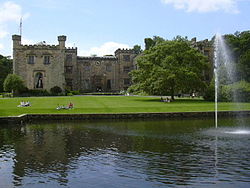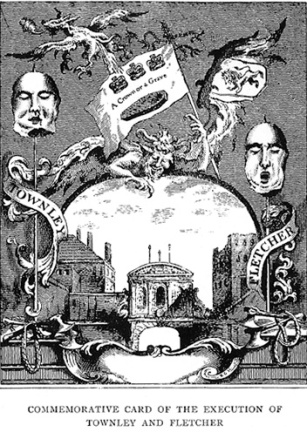For St Davids day we explored the Welsh Jacobites, for St Patricks day we looked at the Irishman General Wade, so now, for St Georges day, we turn to the English impact on the Jacobites and Colonel Francis Townley or Towneley.
As we have mentioned before in this blog the Battle of Culloden, and indeed the Jacobite Risings, was not English vs Scottish. There were men from both countries on both sides. When looking to the English Jacobites many were involved with the Manchester Regiment and the man in charge of them was Francis Townley.
Townley was born in Lancashire to a Roman Catholic family and many of his family joined the Jacobite cause. His father and grandfather both fought to return the throne to King James II when he was exiled and his brother Richard was part of the Jacobite Rising in 1715. However, most of Francis Townleys involvement was in the ’45 Rising.

In 1728 Townley went to France and received a commission in the royal service. He would stay in France for over a decade before he returned to England where he was sent a colonels commission from King Louis XV of France. This enabled him to raise a force of Jacobites to aid Prince Charles Edward Stuart and the Jacobite cause. Townley headed to Manchester where he spent several months as a guest of the Jacobites in the town.
A few days before Prince Charles entered Manchester himself Townley rode out to join him and was told that all those in England who joined the Prince would be commanded by Townley as part of the Manchester Regiment. A few men of the town volunteered, and were made officers, but most of the rest, about three hundred in total, received payment for joining the Princes army.
The Manchester Regiment followed the Prince down to Derby and on their retreat back up to Carlisle. Here Townley was given orders to remain at Carlisle and defend the town, while the prince and his army continued their retreat into Scotland. Townley was determined to fight for the town and it was against his wishes that the governor of the town, a man called Hamilton, surrendered.
With the surrender Townley was thus taken prisoner and put to trial. In his defense Townley said that as a French officer he should be treated as a prisoner of war. He was a commissioned officer of France, not the Stuarts, and therefore was not a traitor. This defence however was not allowed and Townley was found guilty of treason and sentenced to death. On 30th July 1746 Townley was executed at just 37 years old. His body was buried in an unmarked grave the next day and his head was dipped in pitch and placed on a spike at Temple Bar. The head was later secretly removed and the skull is now preserved in the chapel at Townley Hall.

We hope you enjoyed this brief history of Francis Townley. As always please like, tweet, share, comment and keep discovering more history with us.
All the best, K & D